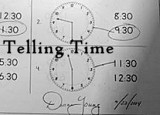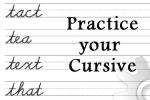The Helping (Auxiliary) Verbs
Definition of Auxiliary Verb: A verb that helps to form other verbs.
The words in the purple cells are a special kind of auxiliary verb called a modal auxiliary.
| do | has | may | should | shall | ought (to) |
| does | have | might | would | will | |
| did | had | must | could | can |
| Forms of to be: |
is | am | are | was | were | be | being | been |
Some usage problems:
Had of. Illiterate for had
ILLITERATE: I wish I had of gone.
RIGHT: I wish I had gone.Had ought. Illiterate combination
WRONG: He hadn't of ought to have gone.
RIGHT: He ought not to have gone.WRONG: He ought to go, had he not?
RIGHT: He ought to go, ought he not?Have got. Colloquial and redundant.
COLLOQUIAL: I have got ten dollars.
STANDARD: I have ten dollars.Can, may Can means to be able; may means to have permission.
RIGHT: Mary can (is able to) drive the car.
RIGHT: May I drive the car?Should of. Illiterate corruption of should have.
We play a silly game at our house that involves the helping verbs. Sometimes one of the kids will ask a one-word question such as, 'when' or 'why'. I reply to my child's one word question with a helping verb that is not one of the 'be' verbs and that starts the game. The child then has to say a helping verb (not a 'be' verb). Then I have to say a helping verb. There is an even number of auxiliary verbs and because of that your child will always win once he/she has memorized them.
This game originated because many questions begin with an auxiliary verb. Ask your kids if they can start a sentence with an auxiliary verb that is not a question.
The rules: No helping verb can be said twice and the one who can't think of a helping verb loses. The winner only wins if he/she can recite the be verbs.
Hello Visitor!
I am currently working on this website to add to its ginormousness. Thank you for visiting, and please subscribe yearly to access my many printable files! Donna Young
May 13, 2021

 Printable Files and Quiz
Printable Files and Quiz The calendar frame
The calendar frame New set of Telling Time worksheets
New set of Telling Time worksheets


